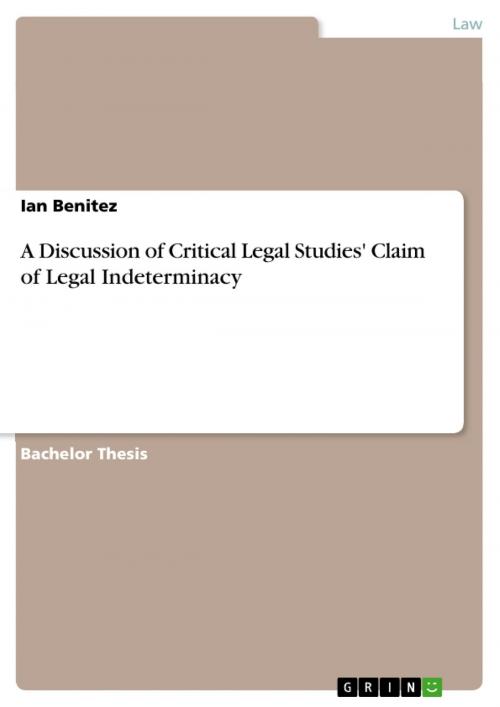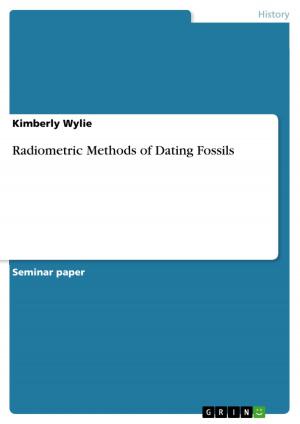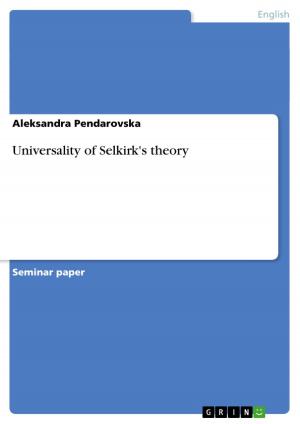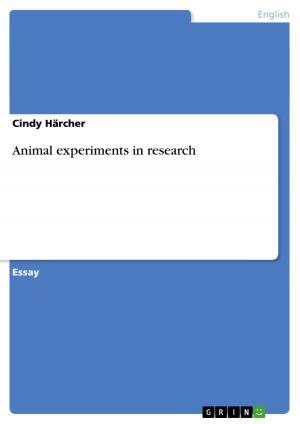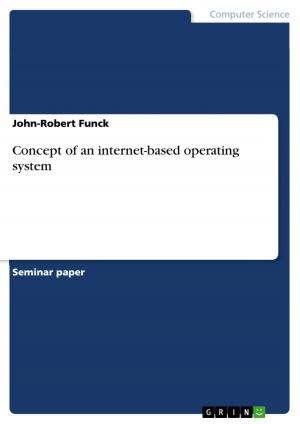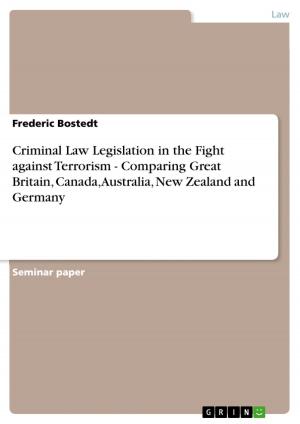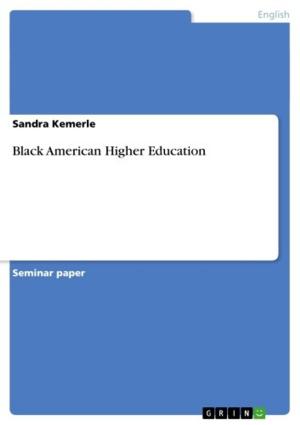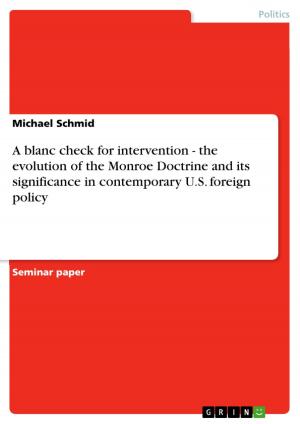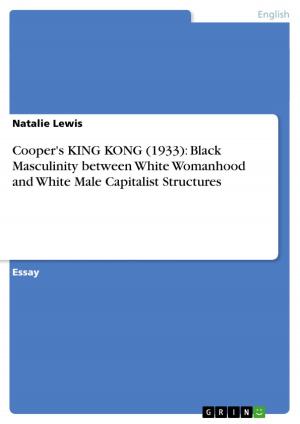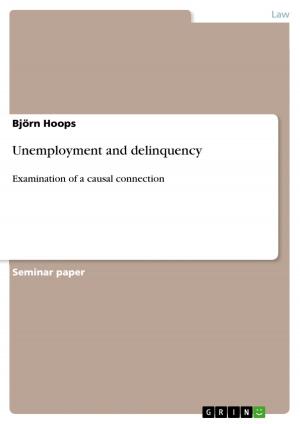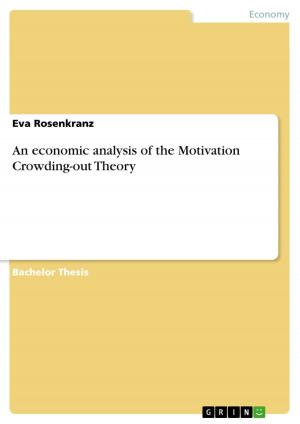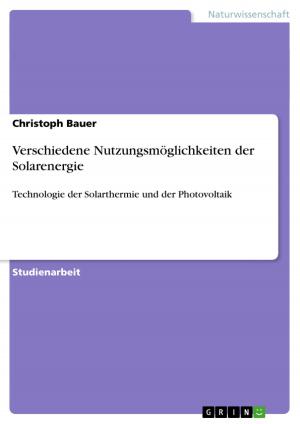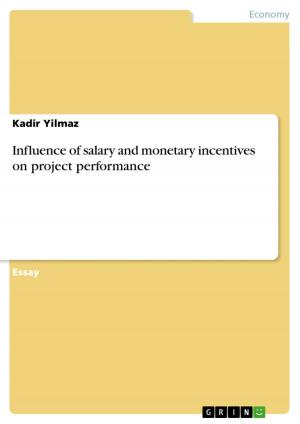A Discussion of Critical Legal Studies' Claim of Legal Indeterminacy
Nonfiction, Reference & Language, Law, Legal History| Author: | Ian Benitez | ISBN: | 9783668032583 |
| Publisher: | GRIN Publishing | Publication: | August 19, 2015 |
| Imprint: | GRIN Publishing | Language: | English |
| Author: | Ian Benitez |
| ISBN: | 9783668032583 |
| Publisher: | GRIN Publishing |
| Publication: | August 19, 2015 |
| Imprint: | GRIN Publishing |
| Language: | English |
Bachelor Thesis from the year 2015 in the subject Law - Philosophy, History and Sociology of Law, grade: 1.75, , course: Bachelor of Arts in Philosophy, language: English, abstract: This paper challenges the Critical Legal Studies (CLS) claims of legal indeterminacy. It shall use a legal formalist logic and language as its main assertion, further maintaining that the CLS claims is only grounded in ambiguity and confusion. CLS is a legal theory that challenges and overturns accepted norms and standards in legal theory and practice. They maintained that law in the historical and contemporary society has an alleged impartiality, and it is used as a tool of privilege and power - law is politics. Consequently, CLS maintained that these results to indeterminacy of law. Legal indeterminacy can be summed up as contrary to the common understanding that legal materials, statutes and case law, do not really answer legal disputes. Legal principles and doctrines, as CLS scholars claim, are said to be indeterminate, for it is riddle with gaps, conflicts, and anomalies that are widely present even in simple cases. Legal indeterminacy also rises because of the underlying political power - law is politics - that implicates law as merely a tool for oppression. This thesis shows that CLS assertions with legal indeterminacy is only grounded on ambiguity. On one hand, using the main concept of legal formalist logic and language grounded with sub-arguments: inherent generality of legal language, reasoned elaboration, and neutral principles, it refutes the CLS claims of legal indeterminacy. On the other, the paper maintains that their main reason of legal indeterminacy, 'law is politics', is merely a statement of fact that currently happens in society is sentimental and weak through counterexamples.
Bachelor Thesis from the year 2015 in the subject Law - Philosophy, History and Sociology of Law, grade: 1.75, , course: Bachelor of Arts in Philosophy, language: English, abstract: This paper challenges the Critical Legal Studies (CLS) claims of legal indeterminacy. It shall use a legal formalist logic and language as its main assertion, further maintaining that the CLS claims is only grounded in ambiguity and confusion. CLS is a legal theory that challenges and overturns accepted norms and standards in legal theory and practice. They maintained that law in the historical and contemporary society has an alleged impartiality, and it is used as a tool of privilege and power - law is politics. Consequently, CLS maintained that these results to indeterminacy of law. Legal indeterminacy can be summed up as contrary to the common understanding that legal materials, statutes and case law, do not really answer legal disputes. Legal principles and doctrines, as CLS scholars claim, are said to be indeterminate, for it is riddle with gaps, conflicts, and anomalies that are widely present even in simple cases. Legal indeterminacy also rises because of the underlying political power - law is politics - that implicates law as merely a tool for oppression. This thesis shows that CLS assertions with legal indeterminacy is only grounded on ambiguity. On one hand, using the main concept of legal formalist logic and language grounded with sub-arguments: inherent generality of legal language, reasoned elaboration, and neutral principles, it refutes the CLS claims of legal indeterminacy. On the other, the paper maintains that their main reason of legal indeterminacy, 'law is politics', is merely a statement of fact that currently happens in society is sentimental and weak through counterexamples.
